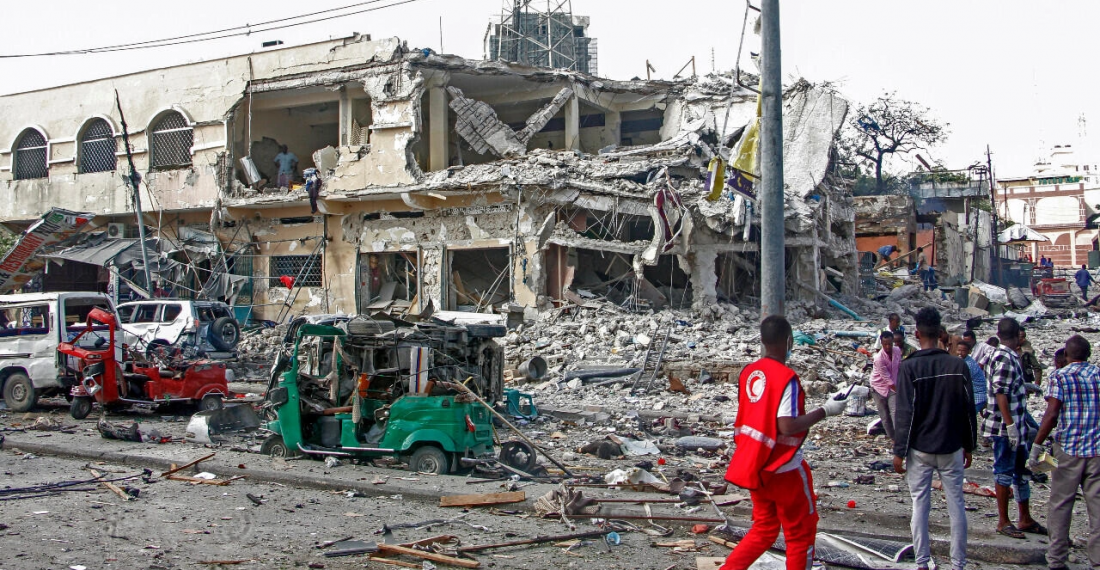Huge terrorist attacks have hit Somalia’s capital Mogadishu, killing at least 100 civilians and wounding 300. Somali President Hassan Sheikh Mohamud said on Sunday (30 October) that among the victims of the twin bombings that took place the day before at a busy intersection in the Somali capital Mogadishu were women, children, and the elderly.
The attack consisted of two cars packed with explosives blowing up at the Zobe intersection, followed by gunfire targeting Somalia’s education ministry. The strike has been claimed by the Al-Qaeda-linked Al-Shabaab terrorist group, who stated that its fighters were targeting the ministry of education.
The attack has been condemned by Somalia’s allies, including the United Nations and Turkey, as well as the African Union, who have been tasked with helping Somali forces regain its monopoly of arms and security by the end of 2024.
For the past 15 years, Al-Shabaab has been seeking to overthrow the fragile government backed by foreign parties in Mogadishu. Its fighters were driven from the capital in 2011 with the help of the African Union force, but the group still controls parts of the countryside and continues to wage deadly strikes on civilian and military targets. Another attack last week organised by the terrorist group in the port city of Kismayo took the lives of 9 people and wounded 47 others. The Somali president, Hassan Sheikh Mohamud, who was elected earlier this year in May, has vowed to wage “all out war” on the Islamists. He urged citizens to stay away from areas controlled by the terrorist group as armed forced and tribal militia were intensifying offensive attacks against them.
Somalia is in a very fragile position; the government is not only dealing with terrorist attacks but also with the worst drought in more than 40 years that is affecting the entire Horn of Africa. Four failed rainy seasons have wiped out livestock and crops. In the midst of deadly Islamist insurgencies, the country is also finding it difficult to cope with the consequences of climate change.







